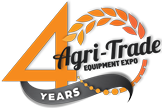When it comes to managing livestock, accuracy matters. Whether you’re tracking animal growth, monitoring feed efficiency, managing herd health, or selling by weight, a reliable livestock scale helps you make informed decisions and avoid costly errors.
At Accurate Western Scale, we offer two of the most trusted weighing solutions from Rice Lake Weighing Systems: the Rice Lake Single Animal Livestock Scale and the Rice Lake Mobile Group Animal Scale. Both are engineered for durability, precision, and ease of use in demanding farm environments—but each serves a different purpose.
Let’s look at the strengths of each Rice Lake livestock scale to help you choose the best one for your operation.
Rice Lake Single Animal Livestock Scale
The Rice Lake Single Animal Livestock Scale is designed for weighing individual animals, such as:
- Cattle
- Bison
- Sheep
- Pigs
This scale is ideal for producers who need accurate, repeatable weights for health monitoring, breeding decisions, or point-of-sale transactions.
Why Farmers Rely on it
Built to Last
This scale features a heavy-duty steel frame engineered to withstand years of use in barns, feedlots, and outdoor settings. It’s built to handle high-capacity weighing while standing up to harsh agricultural conditions.
Accurate, Stable Readings
Using four high-quality load cells, the scale delivers consistent, reliable measurements, even when animals shift slightly during weighing.
Animal-Friendly, Easy Operation
Get smooth loading and unloading with the open-platform design. This reduces stress on animals and improves handler safety.
Flexible Configuration
Available in multiple platform sizes, the Rice Lake Single Animal Livestock Scale can be tailored to different species, weight ranges, and facility layouts.
If your operations focus on individual animal data—such as tracking growth rates, identifying early signs of illness, or recording weights for breeding or sale, the Rice Lake Single Animal Livestock Scale is a proven, dependable solution.
Rice Lake Mobile Group Animal Scale
For large herds or operations that need mobility, the Rice Lake Mobile Group Animal Scale offers exceptional flexibility without compromising accuracy.
Key Advantages
True Portability
Mounted on a dedicated trailer, this scale can be transported directly to pastures, feedlots, or remote locations—bringing the scale to the animals instead of the other way around.
Accurate Weighing on Uneven Ground
This scale’s advanced suspension system compensates for uneven farm terrain, delivering accurate weight readings even when the scale isn’t perfectly level.
Fast, Efficient Weighing
Designed to weigh groups of animals quickly, this scale allows you to load, weigh, and release livestock in minutes—ideal for high-volume operations, auctions, or transport logistics.
Built for Real-World Farm Use
This scale’s rubberized flooring, sturdy pen sides, and secure lock-down mechanisms help protect both animals and equipment during transport and weighing.
For producers managing large herds, multiple locations, or time-sensitive weighing tasks, the Rice Lake Mobile Group Animal Scale delivers speed, accuracy, and convenience.
Investing in a Quality Livestock Scale: Why It Pays
Choosing a high-quality Rice Lake livestock scale is a smart investment that will pay off for your bottom line and operational efficiency. Reliable scales help you:
- Ensure fair and accurate pricing when buying or selling animals
- Track growth rates and feed efficiency with confidence
- Detect potential health issues early through consistent weight monitoring
- Meet trade, transport, and regulatory requirements
When you invest in a Rice Lake scale from Accurate Western Scale, you get more than just weighing equipment—you get accuracy, safety, and long-term productivity.
A Scale for Every Farm
Every farm is unique. That’s why we offer a selection of Rice Lake livestock scales. Whether your operation focuses on smaller groups or large herds, we’ve got the right scale for you. For accuracy, durability, and unmatched precision, invest in a Rice Lake livestock scale.
Still not sure which one is right for you? Contact Accurate Western Scale. Our team members are happy to help you choose the right scale for your operation and provide full installation, calibration, and ongoing support.

